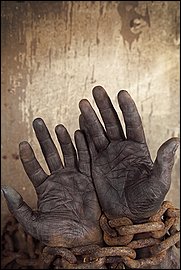| Want to send this page or a link to a friend? Click on mail at the top of this window. |
| More Books and Arts |
| Posted June 9, 2010 |
|
|
|
Island Beneath the Sea |
|
|
|
|
 |
|
|
THE WASHINGTON POST |
|
By MARCELA VALDES |
| ISLAND BENEATH THE SEA |
| By Isabel Allende |
| Harper 457pp. $26.99 |
| Wehaitians.com, the scholarly journal of democracy and human rights |
| More from wehaitians.com |